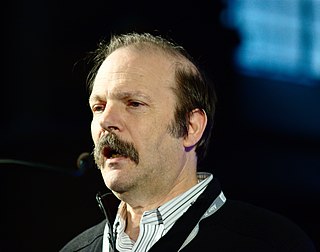A Quote by Andrew Yang
The impending destruction of jobs due to automation and AI technologies is definitely increasing the need for - and speed at which - we have to implement big solutions, such as a universal basic income.
Related Quotes
As a technologist, I see the trends, and I see that automation inevitably is going to mean fewer and fewer jobs. And if we do not find a way to provide a basic income for people who have no work, or no meaningful work, we’re going to have social unrest that could get people killed. When we have increasing production - year after year after year - some of that needs to be reinvested in society.
Jobs for every American is doomed to failure because of modern automation and production. We ought to recognize it and create an income-maintenance system so every single American has the dignity and the wherewithal for shelter, basic food, and medical care. I'm talking about welfare for all. Without it, you're going to have warfare for all.
"Jobs for every American" is doomed to failure because of modern automation and production. We ought to recognize it and create an income-maintenance system so every single American has the dignity and the wherewithal for shelter, basic food, and medical care. I'm talking about welfare for all. Without it, you're going to have warfare for all.
Government investment unlocks a huge amount of private sector activity, but the basic research that we put into IT work that led to the Internet and lots of great companies and jobs, the basic work we put into the health care sector, where it's over $30 billion a year in R&D that led the biotech and pharma jobs. And it creates jobs and it creates new technologies that will be productized. But the government has to prime the pump here. The basic ideas, as in those other industries, start with government investment.
What is work going to look like in the future? How are Democrats going to be able to give people a sense that they can have good jobs, or if they don't have good jobs, maybe they have to have universal basic income - we have to have a longer discussion about the future. This is not just an intellectual exercise; it's an exercise about giving people hope.
































